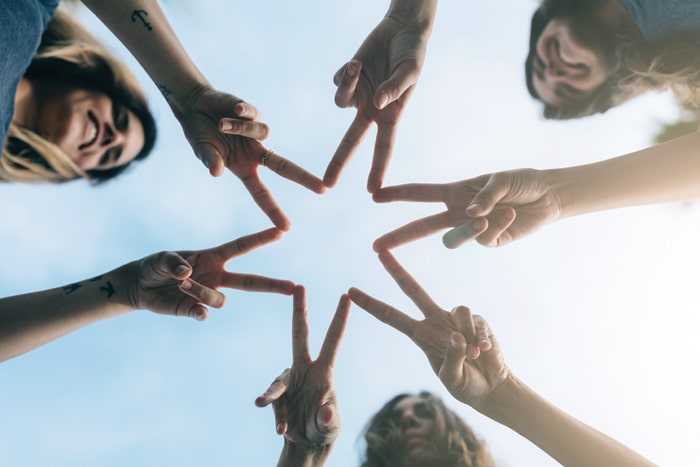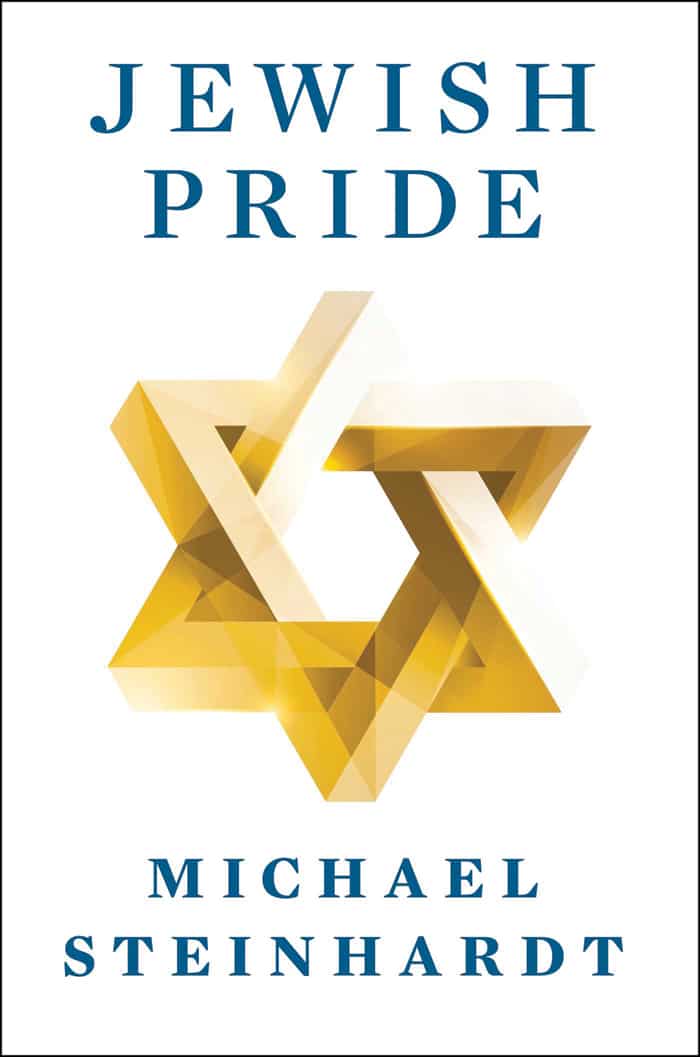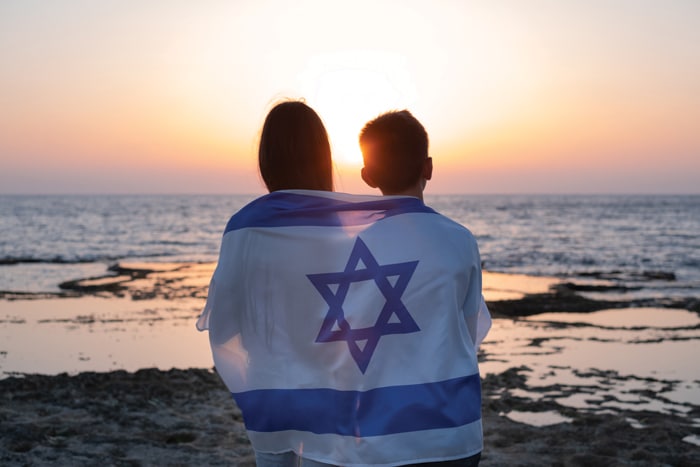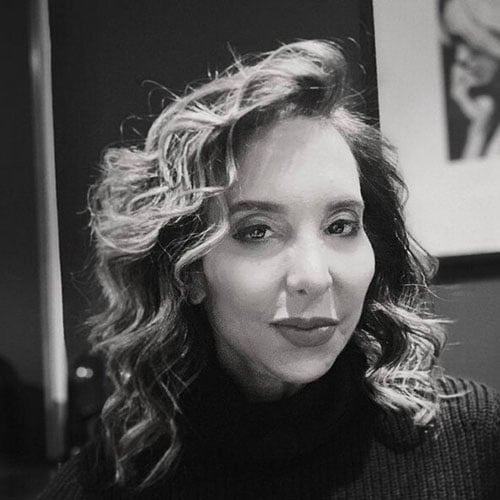 Westend6/Getty Images
Westend6/Getty Images When I was a child, we lived down the street from a small conservative synagogue called Ner Zedek. I was there all the time. Not because I had to be, but because I wanted to be. Everything about the synagogue, from the warm, loving rabbi to the soulful services, meshed with every aspect of who I was: It made me who I was. Judaism was at the core of my identity. Warmth, intimacy, love, joy. I was living the Michael Steinhardt dream, even though I had no idea who he was at the time — the Steinhardt who at 55 years old left a stellar career on Wall Street to spend the next three decades launching innovative philanthropic programs like Birthright Israel and OneTable.
When I was 11, we moved further north to a big, impersonal synagogue. I hated every aspect of it. From the fashion show superficiality to the sterile, soulless services, I began to dread going to synagogue. I had been set on attending Hebrew high school and spending my summers in Israel. But after my Bat Mitzvah, I became part of the Steinhardt nightmare: I went to synagogue only on the High Holidays, grudgingly.
 The synagogue, in its keen desire for assimilation, had destroyed Judaism for me.
The synagogue, in its keen desire for assimilation, had destroyed Judaism for me.
It was only when I was at The New Republic after college and told Literary Editor Leon Wieseltier the story that I slowly began to reconnect with the most essential aspect of my identity.
My relationship with Judaism mirrored other aspects of Steinhardt’s new book: “Jewish Pride.” When I moved to New York City, I, too, connected with the piercingly soulful music of B’nai Jeshurun Synagogue. I, too, have been disappointed by the mainstream Jewish establishment’s inability to process — to even understand — new ideas. When I tried to get funding for an international “Passage to Israel” exhibition that would show the inherent beauty and diversity of Israel I was met with mostly indifference.
“Our community has been, for decades, stuck in a kind of malaise,” writes Steinhardt. “On the whole, we are not fired up. We are not in love. We are not, as a community, showing courage or creativity or heroism. If anything, the opposite is true.
“Our community has been, for decades, stuck in a kind of malaise,” writes Steinhardt. “On the whole, we are not fired up. We are not in love. We are not, as a community, showing courage or creativity or heroism. If anything, the opposite is true. Every year, more and more young Jews seem to drift away …. [Our] sense of Jewish purpose seems to be dissipating.” The past month of incessant hate from all sides only underscores the problem. We can’t fight antisemitism if we don’t know who we are — and are not proud of it.
But that’s not the main issue for Steinhardt: “The real threat to Jewish survival is from assimilation.”
What’s noteworthy about the new book, part memoir, part manifesto, is Steinhardt’s unabashed honesty. In a world where status and partisanship play outsized roles, Steinhardt candidly states the hard truths: “It’s unfortunate that so many Jews require non-Jewish validation … but that’s the reality today.”
Steinhardt was born in 1940 in the Bensonhurst neighborhood of Brooklyn. “The New York I grew up in was filled with immigrant Jews who had a sense that you didn’t have to be embarrassed about your Jewishness to succeed … ‘Being Jewish’ in Bensonhurst was not a problem. We knew who we were, and we were proud of it.” As a result, “immigrant neighborhoods like Bensonhurst were much more of a mosaic than a melting pot.”
Steinhardt blames the Jewish non-profit world for the problem of over-assimilation. “[M]any major Jewish institutions … seem to care more about raising money than making your Jewish life rich, inspiring, and important.” Our institutions and leaders “failed to provide what you, as a Jew, truly deserve: a core of knowledge, personal heroic examples, a powerful bond to the Jewish people … and a sense of the incomparable joy of being Jewish.”
There were two opposing forces, writes Steinhardt. “One force, born of the fear of persecution and social rejection that we had faced for centuries, pushed Jews to downplay their ethnic heritage and minimize their difference.” The second force “encouraged secular Jews to embrace our uniqueness and wear it with pride.”
Unfortunately, the first force largely won.
“Jewish pride, once you’ve tapped into it, is an incredible thing. It’s invigorating, it’s life-changing, and it’s beautiful. But if you cut off the oxygen to pride, it withers.”
“Our most burning problem is spiritual: the strengthening of Jewish identity through the inculcation of pride,” writes Steinhardt. “Jewish pride, once you’ve tapped into it, is an incredible thing. It’s invigorating, it’s life-changing, and it’s beautiful. But if you cut off the oxygen to pride, it withers.”
“I know we have many of the tools we need to solve [the problem],” writes Steinhardt. “But do we have the courage?”
Peoplehood
Steinhardt believes there are three elements of Jewish pride: a sense of peoplehood, the spirit of Zionism, and an understanding of Jewish “excellence.” “The first step is acknowledging that you are part of a people,” he writes. “Something special and distinct, with its own history. A unique tribe, a team, a nation.”
When I wrote a piece for the Journal on Judean ethnicity a few years ago and discovered the wealth of evidence that supports the “peoplehood” argument — the fact that Judaism is more than a religion — I kept thinking: Why hadn’t our synagogues and other Jewish institutions taught us this? Embodied in our Judean ethnicity is our indigeneity to the land of Israel. How differently would the last few decades have played out — especially on college campuses — if our synagogues had taught us these compelling and irrefutable facts?
For Steinhardt, who grew up in a traditional home but early in life became an atheist, the ethnicity truth was self-explanatory: “My overall attachment to being Jewish … is a thoroughly secular pride in being Jewish.” (Steinhardt does admit to having a “soft spot” for Orthodox leaders. “I sense in them an unabashed pride and joy in being Jewish that resonate strongly with me.”) While researching the piece, I had the same next logical question as Steinhardt: Why hadn’t we been taught conversational Hebrew? “Can you imagine how different things would be if a significant portion of non-Orthodox American Jews were fluent in Modern Hebrew? …. The case for Hebrew as a gateway to Jewish identity has always been obvious to me.” But instead, for many Jewish Americans, Judaism was reduced to a misunderstood notion of “tikkun olam.” It became merely a political tool to a supposed “more illustrious” assimilation. “Judaism itself became, at least for many secular Jews, almost entirely subordinate to the progressive school of politics,” writes Steinhardt.

“Jewish identity, while it contains universalist elements, is not itself a universal value. It is rather the specific identity of a particular people in history,” he explains. “By emphasizing only what we may give to others distracts us from what we owe ourselves.” Steinhardt believes that modern Hebrew is the best road to fully understanding and embracing our ethnicity — our peoplehood. “There will be many unengaged Jews for whom this can be a point of entry into a more powerful Jewish identity,” he writes.
Countless times I’ve heard secular Jews say that when they hear or see Hebrew unexpectedly, it hits them in a visceral way they can’t explain. A mini-version, perhaps, of Elie Wiesel’s insight: “When a Jew visits Jerusalem for the first time, it is not the first time, it is a homecoming.”
“What if American Jews embraced Hebrew as a living part of their Jewish lives, even writing Hebrew songs and producing Hebrew-language movies?” asks Steinhardt. “We can imagine Hebrew becoming a living language for Jews everywhere, in which we as a global people can talk and create and develop together.” And then there’s the crucial added benefit: “Today there is probably no greater single tool for building understanding and sympathy for Israel — among Jews and non-Jews alike — than fostering widespread fluency in Modern Hebrew.”
The Spirit of Zionism
For Steinhardt, though, perhaps the most important reason for learning modern Hebrew is that “the spirit of Zionism is hard to translate into English.” The “spirit of Zionism” — which Steinhardt describes as an “inner strength and vibrancy, a confident boldness” — has inspired Steinhardt since he first worked on a kibbutz after college. “Throughout the years of my youth, I internalized the new state’s successes, its failures, and its fears as if they were my own.”
Indeed, the notion of peoplehood is already being fully played out in our homeland. Diasporan Jews only have to look at our Israeli brothers and sisters as role models.
“Israel, I began to realize, was nothing less than a living Jewish ideal: intense, proud, joyful, comprehensive, and full of fire. The contrast with Jewish communal life in America could not have been more striking.”
“Israel, I began to realize, was nothing less than a living Jewish ideal: intense, proud, joyful, comprehensive, and full of fire. The contrast with Jewish communal life in America could not have been more striking.” “Being Jewish was an act of defiance,” he writes. “Zionists … were all about taking this ancient truth and moving it forward.”
Steinhardt became mesmerized with Israelis in his early 20s. “Israelis knew how to dance and sing and celebrate life with an intensity I had not seen outside the Orthodox community of Bensonhurst. They possessed a powerful spirit that hid nothing and apologized to no one.”
Steinhardt saw his mission as “translating the deep, distilled Jewish spirit I had encountered in Israel” and making it come alive in the Diaspora. As such, Jews will never again feel a need to apologize for who we are. “We have always been a bit edgy. The Bible was a revolutionary book that changed the world.”
Excellence
After the Holocaust, Jewish achievements were infused with a spiritual meaning for many. Indeed, Steinhardt had found much of the Zionist spirit in Bensonhurst, which had become a haven for Holocaust survivors. “When I was growing up, we knew we were Jewish … and we took pride in the achievements” of Jewish heroes. “We took pride in their accomplishments. And in a way, their accomplishments were our own.” He continues: “We didn’t question our connection to, and responsibility for, each other. We were aware of a certain kind of Jewish excellence, and we were not ashamed to say so.” “Today, it seems we take Jewish achievements for granted, and we often don’t feel like we are a part of them. … As a result, “we cut off the oxygen that fuels our pride.”
For Steinhardt, our “’secret sauce’ of spiritual and intellectual excellence” has little to do with our DNA. Rather it is “inextricable” from our upbringing, culture and identity as Jews. “We Jews had one huge advantage over other groups … Our parents taught us to care about doing well in school.” The “unwritten commandment that even the poorest Jews held sacred: Do thy homework.” Today, Steinhardt believes, we lack Jewish heroes. We lack Jews in every field who proudly make their Judaism part of their achievement. “Without a distinct sense of Jewish heroism,” writes Steinhardt, “there can be no Jewish pride.”
Steinhardt does not mince words when discussing the failure of Jewish institutions to both support and inspire the Jewish community, to help inculcate Jewish pride as the antidote to assimilation.
Tough Love
Steinhardt does not mince words when discussing the failure of Jewish institutions to both support and inspire the Jewish community, to help inculcate Jewish pride as the antidote to assimilation. For example:
- “The ‘Jewish Turf Machine’ crushes innovative initiatives, if it diminishes their ‘brand’ or funding.”
- Hebrew school is a “joyless institution in which joyless teachers purported to educate miserable, bored kids … If the memory of Hebrew school fills people with loathing, then we shouldn’t be surprised if a generation later, they don’t bother raising their own kids as Jews.”
- “How did Jews, the people who value education above everything else, manage to create such terrible schools?”
- “Change and innovation are difficult for Jewish institutions.”
- “There’s a whole system of accolades and honors and galas and plaques that numbs most donors into believing that they are already doing their part. Their public status is commensurate with the size of their gifts, not with their effectiveness.”
With nearly everything he tried to initiate as an entrepreneurial philanthropist, there was major pushback from the establishment groups. Nevertheless, Steinhardt managed to create, with the help of partners, stellar programs like Birthright and OneTable; build 60 new Jewish day schools; and found a network of Hebrew language charter schools. “My first focus was on formal Jewish education, which was supposed to infuse our children with the core knowledge of who we are, what we have been through, and what we have achieved.”
Since the launch of Birthright at the end of 1999, more than 600,000 young Jews from across the Diaspora have been able to experience an intense, and free, ten-day trip to Israel. “A trip to Israel at a young age can have a powerful impact on the trajectory of one’s entire life,” as it had on his own. But even Birthright was met with disapproval from some of the establishment organizations.
Steinhardt, often in partnership with Charles Bronfman, tried to apply his business acumen to how these programs and groups functioned. Most especially, he tried to change how programs were evaluated: They should be based on impact, not donations. “The failure of the establishment to preserve Jewish pride from one generation to the next was rooted in an unaccountable system,” he writes.
A metaphor running through the book is the American Jewish obsession with planting trees in Israel as though its survival depended upon it. “If you ask any Israeli: Over the generations, what were the most acute needs facing the Zionist enterprise in the Land of Israel? You’ll discover that the absence of trees was always very low on the list.”
The Rebellion Begins
The underlying theme of the book is that the inculcation of Jewish pride begins in the home. Since my son was an infant, I’ve called him my “little Maccabee,” read him stories of biblical heroes, and watched “The Ten Commandments” about 10,000 times. His favorite character was Joshua—he was mesmerized by his confidence and courage. I began to use the phrase: “Use your strength for good.” I didn’t fully realize at the time how important this early cultivation would become. For lack of better alternatives, I ended up sending him to a synagogue that lacked the warmth I remember in my childhood. While I never directly encountered antisemitism growing up, he’s had to deal with various encounters that I still find breathtaking in New York City.
When he was five years old, one boy bluntly told him: “I don’t like Jews.” At six, he defended the Jewish people from accusations of killing Christ in his elementary school cafeteria. As he got older, I began to teach him about Israel’s foes, thinking I was preparing him for college. But last year, when he was in 7th grade, a current events discussion turned to Israel and Hamas — with the teacher defending Hamas. He stood up, offered the class ten minutes of facts, and then sat down. Apparently, no one said anything afterward.
Steinhardt stresses at every turn that the rebellion of Jewish pride must begin in the home because we can’t count on even our synagogues or schools to inculcate this pride.
Steinhardt stresses at every turn that the rebellion of Jewish pride must begin in the home because we can’t count on even our synagogues or schools to inculcate this pride. I couldn’t agree more, but I also think that Gen Z has an instinctive sense of real justice that is easier to build upon.
When the Kanye and Kyrie Irving incidents erupted, young Jewish leaders like Rudy Rochman, Noah Shufutinsky and Yirmiyahu Danzig were quick to chastise in innovative ways. Kosha Dillz created a mocking rap video called “Death Con 3 {Ye Diss},” which included the now iconic line: “I’m a naysayer and a Maccabee.” Irving was one of my son’s heroes. It was a difficult conversation explaining to him who the “Black Hebrew Israelites” believe they are and what is their particular brand of antisemitism. But much to my surprise, his initial reaction was similar to mine: “I thought they hate us; now they want to be us?” Sadly, some of his Jewish friends don’t have a feeling of “us.” But because I started early, it’s as natural to him as his love of basketball.
For Steinhardt, Jewish pride is the opposite of assimilation: We are who we are.
For Steinhardt, Jewish pride is the opposite of assimilation: We are who we are. If you don’t like us, that’s your problem; we don’t care what others think. We have been connected as a people for thousands of years. Indeed, our connection has been the ultimate act of non-conformity: continuing our traditions while enduring every possible type of persecution. As a result, an instinctive non-conformity is inextricably bound to the term “Jewish people.”
Between Steinhardt’s book, Ben Freeman’s new book “Jewish Pride: Rebuilding a People,” and the swift and searing reaction to Kanye and Kyrie, I think we can say that a “pride” rebellion has unofficially begun. And it is precisely this rebellion that agitates Jew haters.
We’re Jews, Maccabees, fearless non-conformists. We have a long history of people trying to tell us what shouldn’t upset us. But now, strengthened by our Israeli brothers and sisters, we can politely tell the haters to stay in their lane. We can hope that our rebellion — our identity as a proud ethnicity — will only get stronger. As Matisyahu so aptly put it: Our “strength comes not from man at all.”
Karen Lehrman Bloch is editor in chief of White Rose Magazine.






















 More news and opinions than at a Shabbat dinner, right in your inbox.
More news and opinions than at a Shabbat dinner, right in your inbox.